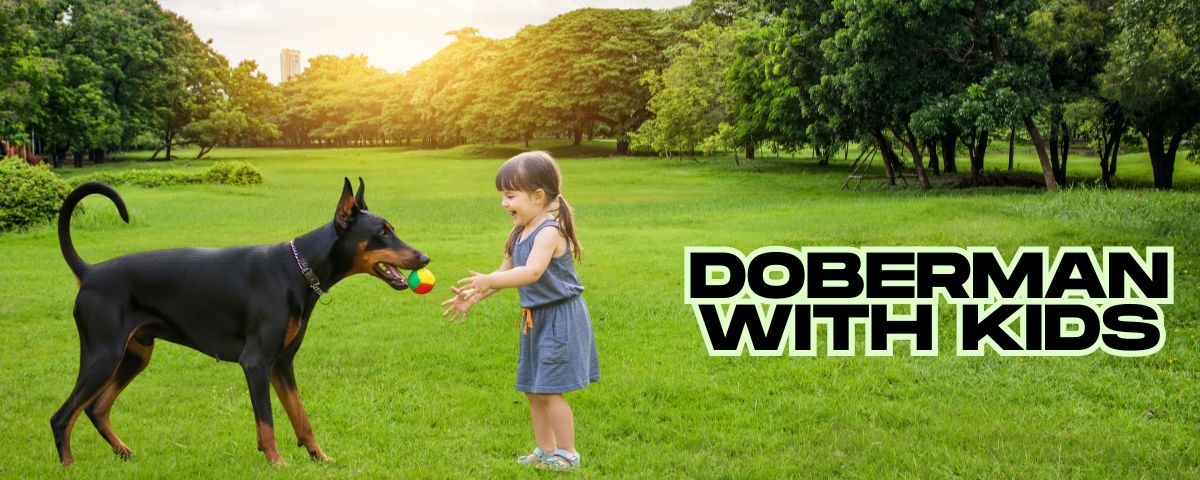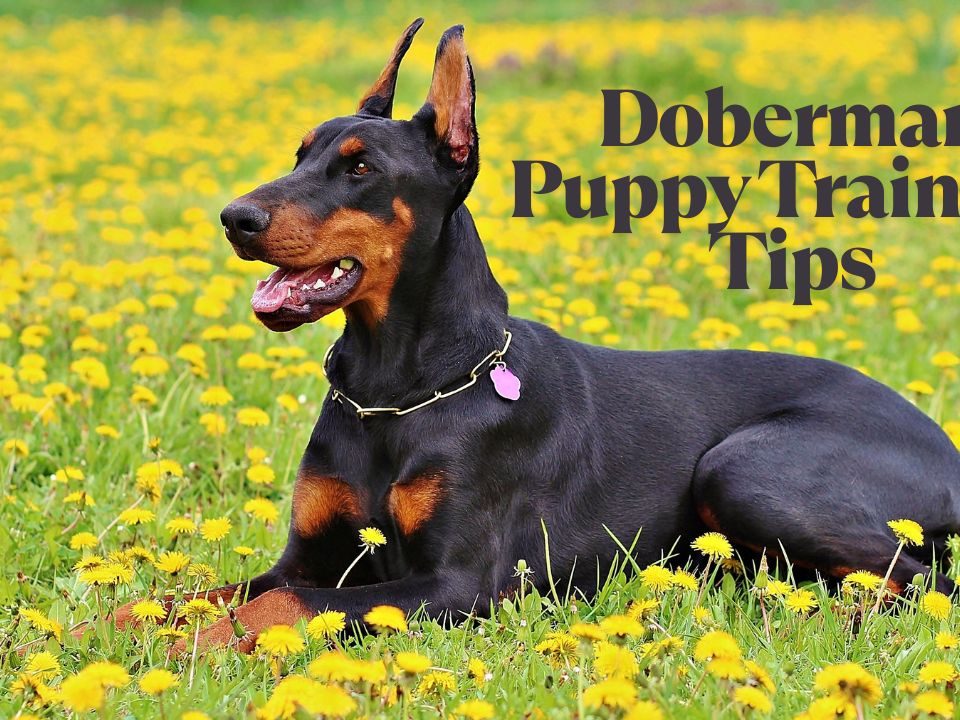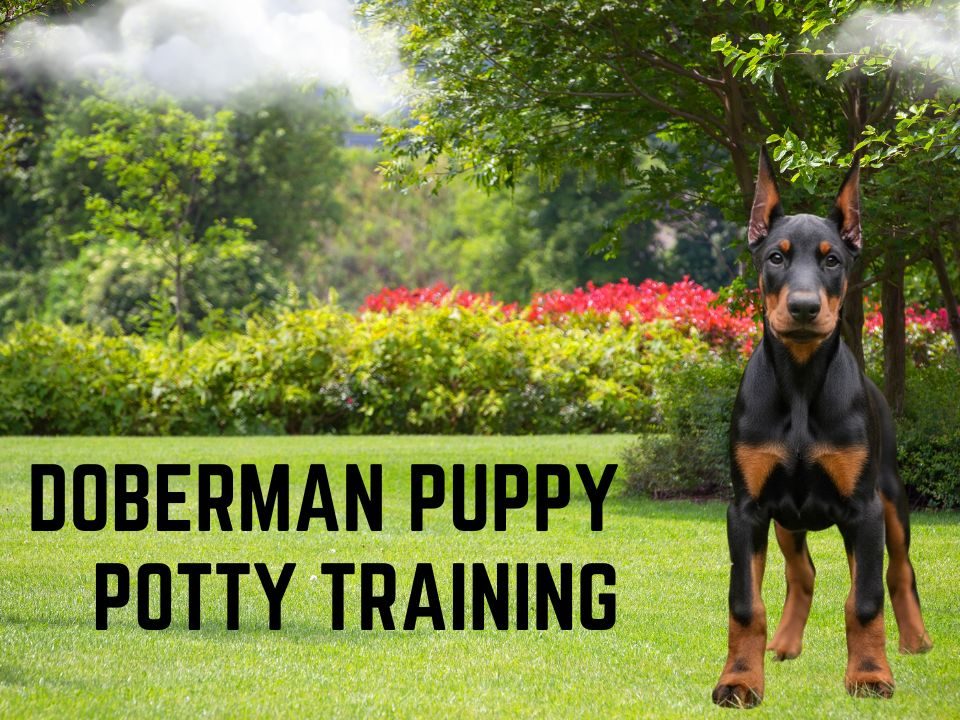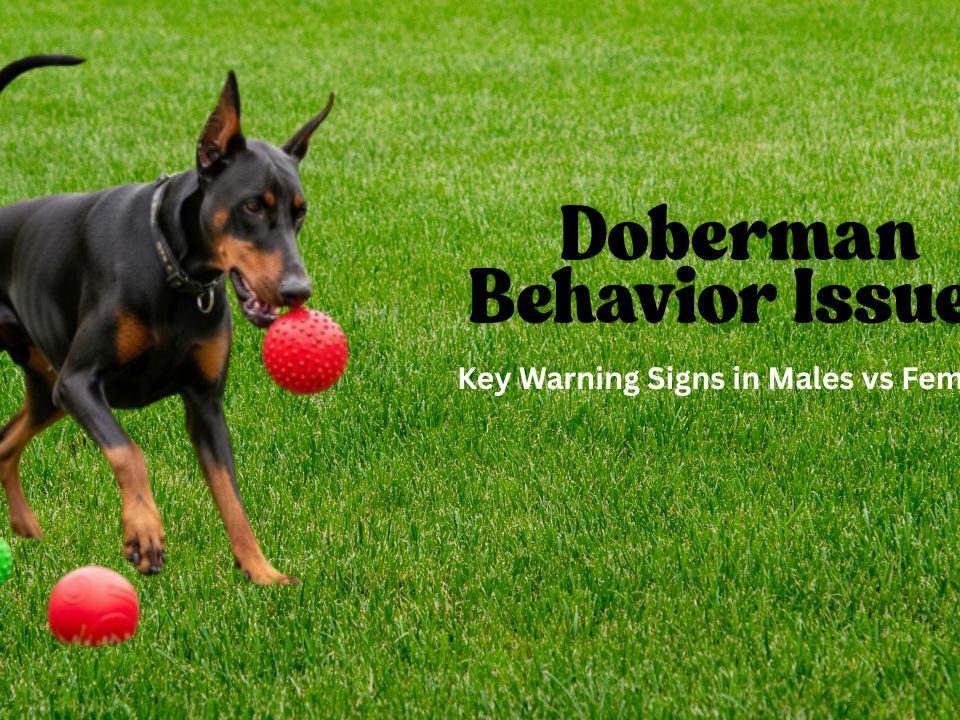
How To Train a Doberman Puppy: 13 Tips for First-Time Owners
May 30, 2025When considering a new pet for your household, especially one as strong and loyal as the Doberman Pinscher, a common concern many families have is whether are Dobermans good with kids? This question holds particular weight for families with small children or plans to grow their family. Understanding the temperament, behavior, and needs of a Doberman is crucial before welcoming one into your home.
In this guide, we’ll explore whether Dobermans are good family dogs, what you should know about Doberman training, how European Doberman puppies might differ, and how to raise a Doberman that thrives in a family environment. If you’re asking yourself, is a Doberman a good family dog?, you’re in the right place.
Understanding the Doberman Temperament
Before diving into their compatibility with children, it’s essential to understand the natural temperament of the Doberman Pinscher. Originally bred in Germany in the late 19th century, Dobermans were developed as protection and working dogs. This history has instilled in them traits like intelligence, alertness, loyalty, and courage.
While these characteristics make them excellent guard dogs, it’s important to balance that protective instinct with socialization and Doberman training. When trained correctly, a Doberman can become one of the most affectionate and loyal dogs a family could hope for.
So, Are Dobermans Friendly?
The short answer is yes—with proper socialization and a stable environment, Dobermans are friendly, especially with their human family. However, friendliness doesn’t always mean being immediately outgoing with strangers. Dobermans tend to be reserved or cautious around people they don’t know, but are generally very affectionate and loyal with their family members.
Are Dobermans Good With Kids?
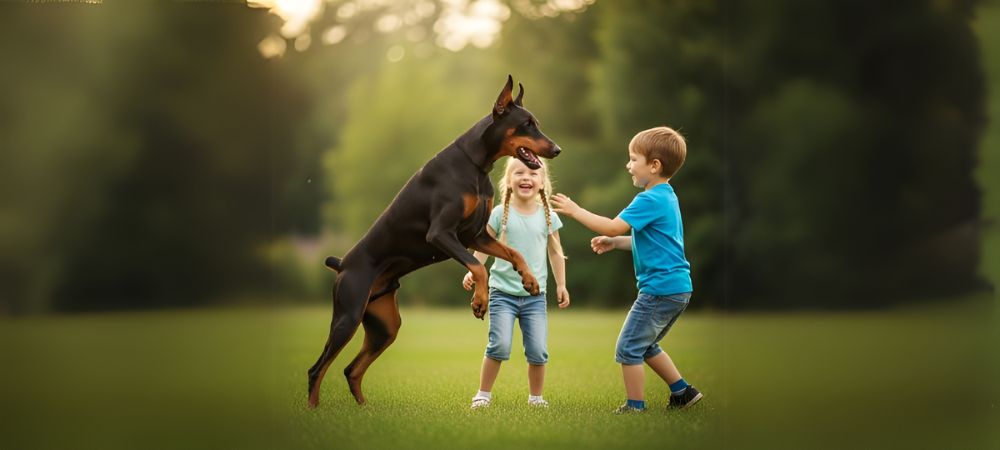
Let’s address the central question: Are Dobermans good with kids? The answer is nuanced. Many families have raised Dobermans alongside children with no problems. In fact, with proper Doberman training and early socialization, they can be incredibly affectionate, patient, and protective of younger family members.
Here are several key factors to consider:
1. Early Socialization is Crucial
Newborn Doberman puppies should be socialized from an early age. Exposing them to children, other pets, and a variety of environments helps them become more adaptable and less likely to react with fear or aggression. If you’re considering adopting European Doberman puppies, make sure they come from a reputable breeder who has begun this process.
2. Doberman Training and Boundaries
Dobermans thrive in environments where clear boundaries are set. This is especially important when kids are involved. Structured Doberman training teaches them impulse control, which is crucial in homes with toddlers or young children. Basic commands like “sit,” “stay,” and “gentle” go a long way in preventing accidental rough behavior.
3. Temperament of the Individual Dog
Just like people, every dog has a unique personality. A young Doberman may have a higher energy level and require more supervision around children, whereas a 1 year old Doberman may already have some training and better impulse control.
Are Dobermans a Good Family Dog?
To determine if the Doberman Pinscher is a good family dog, we need to look at several key traits:
Loyalty
Few breeds are as loyal as the Doberman. They form strong bonds with their family and often consider themselves as protectors. This is a double-edged sword—it can lead to overprotectiveness without proper Doberman training but also means the dog will be deeply connected and responsive to family dynamics.
Intelligence
Dobermans are incredibly intelligent, ranking among the top five smartest dog breeds. This means they learn commands quickly and can adapt to complex situations. However, it also means they require mental stimulation. Puzzle toys, obedience classes, and consistent training are must-haves.
Energy Level
Dobermans are high-energy dogs. A 1 year old Doberman, for instance, will need a lot of exercise and playtime to keep them mentally and physically satisfied. This can be a good thing in an active family with kids, but less ideal for sedentary households.
Protective Instinct
Because Dobermans are natural protectors, they will often act as guardians for children in the household. This makes them an excellent Doberman for family safety, but it also means you need to be cautious when guests or new people are introduced to the home.
Dobermans and Different Age Groups of Children
Toddlers and Infants
With infants or toddlers, supervision is non-negotiable. Even the most well-trained dog can become startled or overwhelmed by erratic movements or loud noises. That said, many Dobermans have shown exceptional patience and gentleness with babies when properly socialized.
Elementary-Aged Children
Children who are old enough to understand basic dog behavior can form a strong bond with a Doberman. Teaching kids how to approach the dog respectfully, avoid tugging on ears or tail, and recognize signs of discomfort is key.
Teenagers
Dobermans often thrive with teens who are active and capable of participating in the dog’s training and care. Activities like agility training, jogging, or advanced obedience courses are great ways to engage both the teen and the dog.
Male vs Female Doberman: Which is Better for Families?
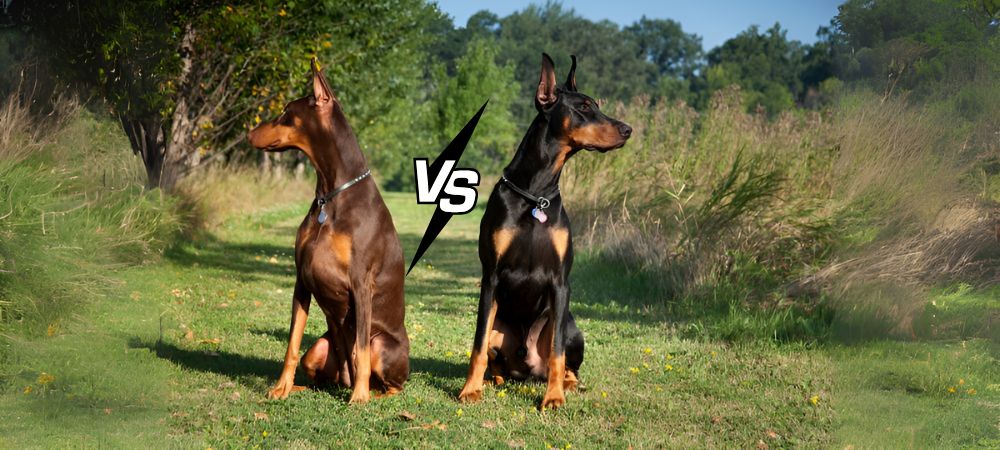
If you’re trying to decide between a male or female Doberman, this article on male vs female Doberman can help guide you. Generally, male Dobermans are larger and often more playful, while females can be slightly more reserved and mature faster. Both sexes can make wonderful Doberman family dogs if properly raised and trained.
Raising European Doberman Puppies in a Family Setting
European Doberman puppies are known for their strong bone structure, bold temperament, and high drive. These dogs are often used in working environments such as police or military roles due to their intensity and confidence.
However, this doesn’t mean they aren’t suitable for families. In fact, European Dobermans can make incredibly devoted family companions with early and consistent Doberman training. Because they often have a more assertive temperament, choosing a responsible breeder and starting training early is especially important.
When raising newborn Doberman puppies, make sure they experience:
- Regular handling by adults and kids
- Exposure to household sounds and smells
- Positive experiences with strangers and other pets
- Basic obedience commands by 8-12 weeks
Common Misconceptions About Dobermans and Children
“Dobermans are too aggressive for kids.”
This is a myth. While Dobermans were originally bred for protection, aggression is not an inherent trait when the dog is properly socialized. Most cases of aggression stem from fear, poor training, or lack of socialization.
“Dobermans can’t be trusted alone with children.”
No dog should be left unsupervised with small children, regardless of breed. However, Dobermans who have been raised in loving homes with firm leadership often form deep bonds with children and act protectively rather than harmfully.
“A young Doberman is too much for a family to handle.”
A young Doberman is indeed a handful, but with structure, patience, and commitment to Doberman training, they can mature into well-balanced adults. Families willing to invest time in early training will reap the rewards.
The Importance of Ongoing Doberman Training
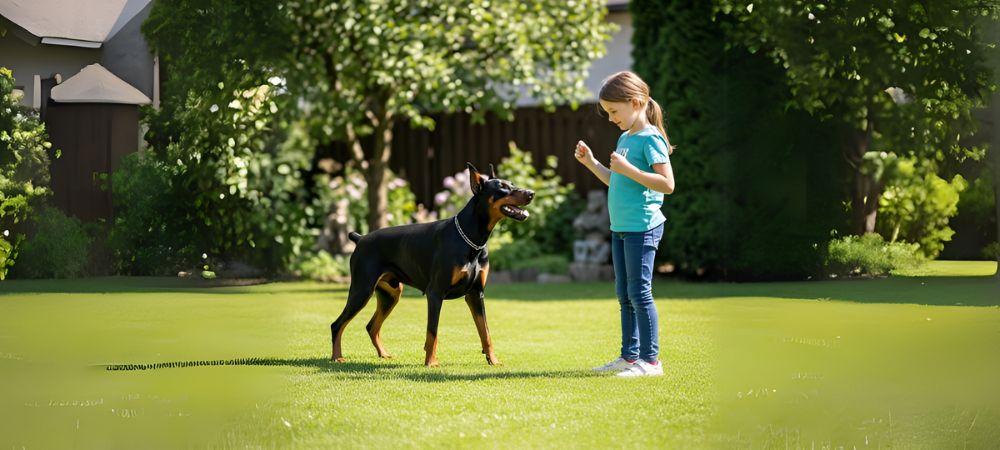
Training doesn’t stop once your Doberman learns basic commands. This breed thrives on challenge and mental stimulation. Continuing education—like agility classes, advanced obedience, or even search-and-rescue activities—keeps your Doberman well-adjusted and happy.
Here are some key areas of training to focus on in a family environment:
- Impulse Control – “Leave it,” “Stay,” and “Wait” are essential commands around children.
- Gentle Play – Teach them to moderate strength during playtime.
- Crate Training – Provides a safe space for rest and helps with house training.
- Leash Manners – Essential for safe walks around kids and neighborhoods.
Bottom Line
If you’re ready to welcome a Doberman into your home, remember that this is a dog that thrives on love, structure, and purpose. With commitment, your Doberman will not only be a good dog for kids—they’ll be one of the best family members you could ask for.
For more information on Doberman training or to explore available Executive Order Doberman Kennel, browse through our latest guides and breeder recommendations on our site.
FAQ’s
Is a Doberman Pinscher a good family dog?
Yes, with proper training and socialization, Dobermans can be exceptional family dogs.
Are Dobermans friendly toward children?
Dobermans can be very friendly and protective toward children they know and love.
Should I choose a male or female Doberman for my family?
Both can be great, but check out our detailed guide onmale vs female Doberman for more insights.
What age is best to adopt a Doberman?
Around 8 weeks is ideal for puppies, but a well-socialized 1 year old Doberman can also adjust well to family life.

